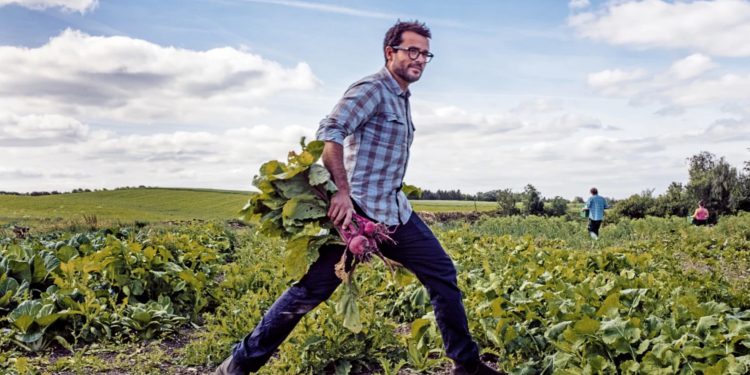That Financial Times reports that Copenhagen is now considered the epicentre of food. And a new movement is brewing where like-minded producers, chefs and innovators are coming together not just to share ideas but leftover products too. It’s become, if you will, the Silicon Valley of the food world: a testing ground for solutions to food waste, recycling of waste products, cooking in a more responsible way and even promoting regenerative farming.
It comes hot on the heels of the New Nordic food manifesto formulated in 2004 by chefs from Denmark to Iceland with a focus on hyperlocal, seasonal ingredients, with the success of René Redzepi’s Noma responsible for catapulting Copenhagen cuisine onto a global platform. “We’re all children of the manifesto,” says Martin Marko Hansen, head of innovation and sustainability at Jalm&B, a large format bakery that is looking for new solutions to utilise wasted bread. “We’ve created a community where we’re connecting over ingredients, having meetings and brainstorming with other like-minded people.”
This New Nordic 2.0 could become a leading example for how to rethink our food system. “Hopefully, it will set the stage for restaurants to operate more responsibly,” says Matt Orlando, chef and owner of Amass. Amass has become a leader in responsible dining. Since the 90 to 100 per cent organic restaurant opened in 2013, it has reduced its rubbish by more than 75 per cent, its annual water consumption by 5,200 litres, and grows many of its ingredients in its waterside urban garden. “Amass is a platform for us to prove that you can do this without compromising on anything,” says the former Noma chef.























